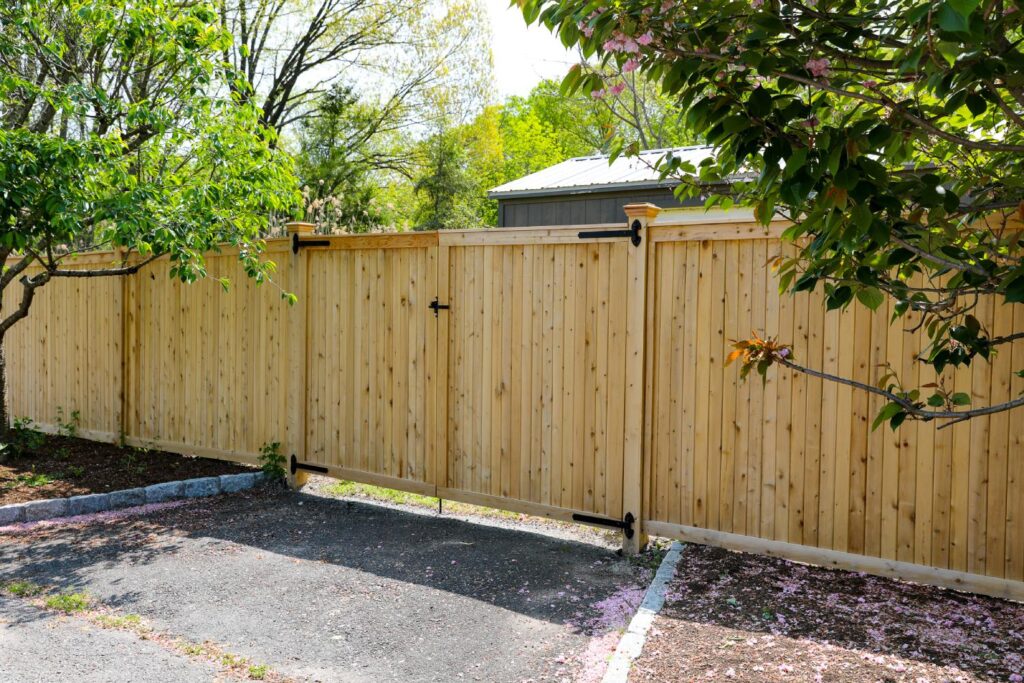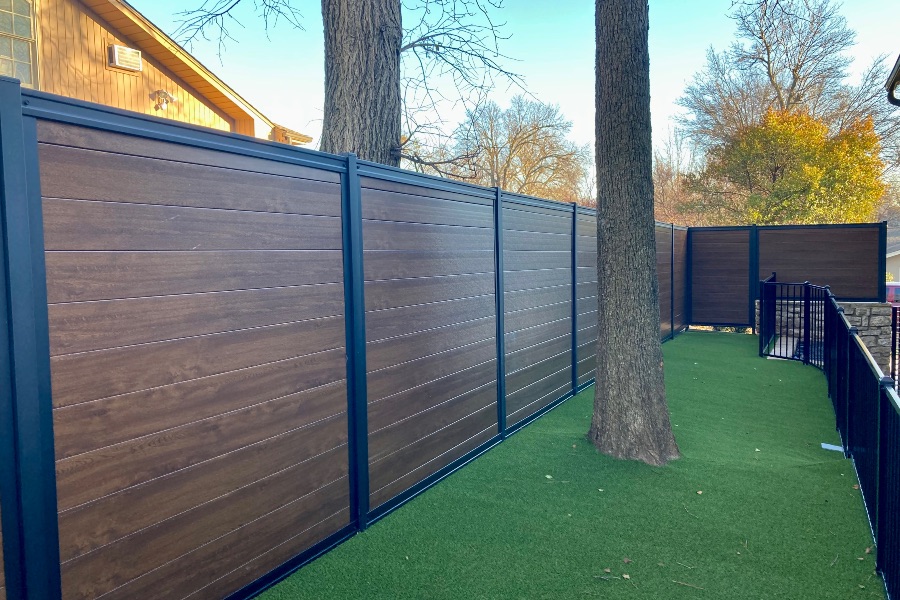All Categories
Featured
It's necessary to understand the license demands particular to your area when you determine to mount a fencing around your domestic home. While setting up a fence can look like a basic home improvement project, regional legislations and regulations must be followed to make sure the setup is legal and compliant. Failing to safeguard the proper permits can result in fines and even require you to remove the fence. Below's a comprehensive take a look at the authorizations you may require for fencing installation.
Why Do You Required an Authorization for Fence Installment? A fencing is greater than just an obstacle between homes-- it can affect safety and security, property value, aesthetic appeals, and even environmental problems. Regional federal governments call for authorizations to ensure that fences fulfill specific requirements and do not trigger issues for utilities, next-door neighbors, or the neighborhood as a whole. Permits additionally ensure that the installation adheres to zoning regulations, building codes, and security regulations.
![]()
Kinds Of Permits You Might Need. Structure Authorization. A structure permit is one of the most usual authorizations required for fence installation. If you're developing a fence over a specific height (typically over 6 feet), you'll likely require a structure license.
Zoning License. Zoning regulations control just how land is used in a specific location, and they include guidelines about fences. A zoning authorization guarantees your fencing abides by elevation, place, and obstacle regulations. Fencings might need to be set back a specific distance from sidewalks, roadways, or residential property lines to avoid obstruction or disturbance with energies. Sometimes, zoning laws can also specify which materials are allowed.
HOA Approval. You may require to look for approval prior to installing a fencing if your residential or commercial property is component of a home owners organization (HOA) HOAs normally have guidelines that control the visual appeals and structure of fencings to ensure they agree with the community. You could require to send your strategies for approval, and the HOA may limit fence height, product, or style.
Specialty Permits. In some locations, there may be added authorizations required for specific scenarios. For example, if your fencing is near a safeguarded ecological area or located in a flood area, you might need to obtain specialty authorizations associated with environmental effect. If the fencing is in a location with below ground utilities, you might need to acquire clearance to stay clear of damaging pipelines or cables.
![]()
Easement or Energy Company Approval. Before setting up a fencing, it's important to inspect whether the property includes an easement, such as an energy easement, which can affect where you can position your fencing. Easements are locations of land designated for exclusive or public utilities, and you may require authorization from the utility company or other authority to build within this area.
How to Learn What Permits You Required. To ensure that you're following all the essential guidelines, here's just how you can identify the particular permits needed for your fencing installation:
![]()
Check Out Your City Government Office: The initial step is to contact your regional structure or zoning division. Lots of cities and areas have standards offered online that specify what kinds of licenses are required for fencing setup. Otherwise, calling or going to the workplace in individual can assist clarify the process. Check Your City's Website: Several communities supply details regarding fencing installations and the permits required via their official internet sites. Some internet sites also enable you to send applications on-line. Get In Touch With a Fencing Installment Professional: If you're not exactly sure concerning neighborhood guidelines, an expert fence specialist can aid. They recognize with the permitting procedure and can guide you with the actions. The Consequences of Not Getting a License. Falling short to secure the needed permits before mounting a fencing can result in significant repercussions. You might be fined or needed to remove the fencing totally. In addition, if you choose to market your residential or commercial property in the future, the absence of a permit could prevent prospective buyers, as they may see it as a sign that the property is not compliant with regional legislations. Making certain that you have the appropriate licenses will conserve you time, money, and frustrations in the future.
Final thought. Mounting a fencing around your property can add both safety and security and aesthetic appeal, yet it is very important to guarantee you're complying with the lawful actions in the procedure. Investigating the certain authorization requirements for your location, including structure authorizations, zoning policies, HOA authorization, and utility approvals, will certainly aid guarantee your fence installation goes efficiently. Making the effort to recognize these demands now can conserve you from expensive blunders and potential legal concerns down the line.
Why Do You Required an Authorization for Fence Installment? A fencing is greater than just an obstacle between homes-- it can affect safety and security, property value, aesthetic appeals, and even environmental problems. Regional federal governments call for authorizations to ensure that fences fulfill specific requirements and do not trigger issues for utilities, next-door neighbors, or the neighborhood as a whole. Permits additionally ensure that the installation adheres to zoning regulations, building codes, and security regulations.

Kinds Of Permits You Might Need. Structure Authorization. A structure permit is one of the most usual authorizations required for fence installation. If you're developing a fence over a specific height (typically over 6 feet), you'll likely require a structure license.
Zoning License. Zoning regulations control just how land is used in a specific location, and they include guidelines about fences. A zoning authorization guarantees your fencing abides by elevation, place, and obstacle regulations. Fencings might need to be set back a specific distance from sidewalks, roadways, or residential property lines to avoid obstruction or disturbance with energies. Sometimes, zoning laws can also specify which materials are allowed.
HOA Approval. You may require to look for approval prior to installing a fencing if your residential or commercial property is component of a home owners organization (HOA) HOAs normally have guidelines that control the visual appeals and structure of fencings to ensure they agree with the community. You could require to send your strategies for approval, and the HOA may limit fence height, product, or style.
Specialty Permits. In some locations, there may be added authorizations required for specific scenarios. For example, if your fencing is near a safeguarded ecological area or located in a flood area, you might need to obtain specialty authorizations associated with environmental effect. If the fencing is in a location with below ground utilities, you might need to acquire clearance to stay clear of damaging pipelines or cables.

Easement or Energy Company Approval. Before setting up a fencing, it's important to inspect whether the property includes an easement, such as an energy easement, which can affect where you can position your fencing. Easements are locations of land designated for exclusive or public utilities, and you may require authorization from the utility company or other authority to build within this area.
How to Learn What Permits You Required. To ensure that you're following all the essential guidelines, here's just how you can identify the particular permits needed for your fencing installation:

Check Out Your City Government Office: The initial step is to contact your regional structure or zoning division. Lots of cities and areas have standards offered online that specify what kinds of licenses are required for fencing setup. Otherwise, calling or going to the workplace in individual can assist clarify the process. Check Your City's Website: Several communities supply details regarding fencing installations and the permits required via their official internet sites. Some internet sites also enable you to send applications on-line. Get In Touch With a Fencing Installment Professional: If you're not exactly sure concerning neighborhood guidelines, an expert fence specialist can aid. They recognize with the permitting procedure and can guide you with the actions. The Consequences of Not Getting a License. Falling short to secure the needed permits before mounting a fencing can result in significant repercussions. You might be fined or needed to remove the fencing totally. In addition, if you choose to market your residential or commercial property in the future, the absence of a permit could prevent prospective buyers, as they may see it as a sign that the property is not compliant with regional legislations. Making certain that you have the appropriate licenses will conserve you time, money, and frustrations in the future.
Final thought. Mounting a fencing around your property can add both safety and security and aesthetic appeal, yet it is very important to guarantee you're complying with the lawful actions in the procedure. Investigating the certain authorization requirements for your location, including structure authorizations, zoning policies, HOA authorization, and utility approvals, will certainly aid guarantee your fence installation goes efficiently. Making the effort to recognize these demands now can conserve you from expensive blunders and potential legal concerns down the line.
Latest Posts
Full Circle Marketing: Boost Your Brand Visibility Today
Published Dec 19, 24
1 min read
The Benefits of DALK for Corneal Problems
Published Dec 19, 24
1 min read
Why Idaho Fence is the Best Fencing Contractor in Idaho
Published Dec 18, 24
1 min read